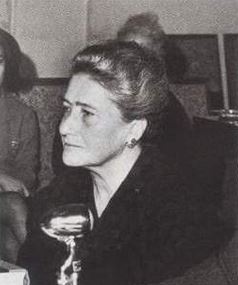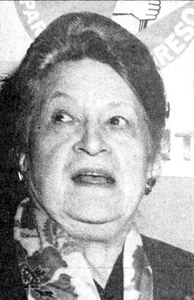Related Research Articles
Women's suffrage is the right of women to vote in elections. In the beginning of the 18th century, some people sought to change voting laws to allow women to vote. Liberal political parties would go on to grant women the right to vote, increasing the number of those parties' potential constituencies. National and international organizations formed to coordinate efforts towards women voting, especially the International Woman Suffrage Alliance.

The National American Woman Suffrage Association (NAWSA) was an organization formed on February 18, 1890, to advocate in favor of women's suffrage in the United States. It was created by the merger of two existing organizations, the National Woman Suffrage Association (NWSA) and the American Woman Suffrage Association (AWSA). Its membership, which was about seven thousand at the time it was formed, eventually increased to two million, making it the largest voluntary organization in the nation. It played a pivotal role in the passing of the Nineteenth Amendment to the United States Constitution, which in 1920 guaranteed women's right to vote.

The National Woman's Party (NWP) was an American women's political organization formed in 1916 to fight for women's suffrage. After achieving this goal with the 1920 adoption of the Nineteenth Amendment to the United States Constitution, the NWP advocated for other issues including the Equal Rights Amendment. The most prominent leader of the National Woman's Party was Alice Paul, and its most notable event was the 1917–1919 Silent Sentinels vigil outside the gates of the White House.

Women's suffrage in Japan can trace its beginnings back to democratization brought about by the Meiji Restoration, with the suffrage movement rising to prominence during the Taisho period. The prohibition of women from political meetings had been abolished in 1922 after demands from women's organizations led by activists such as Hiratsuka Raichō and Ichikawa Fusae. The movement suffered heavy setbacks during and after the Great Depression, when support for democracy began to wane and military influence over civilians increased dramatically. The first election by universal suffrage without distinction of sex was held in 1946, but it was not until 1947, when the constitution for post-war Japan came into effect, that universal suffrage was established In Japan.
African-American women began to agitate for political rights in the 1830s, creating the Boston Female Anti-Slavery Society, Philadelphia Female Anti-Slavery Society, and New York Female Anti-Slavery Society. These interracial groups were radical expressions of women's political ideals, and they led directly to voting rights activism before and after the Civil War. Throughout the 19th century, African-American women such as Harriet Forten Purvis, Mary Ann Shadd Cary, and Frances Ellen Watkins Harper worked on two fronts simultaneously: reminding African-American men and white women that Black women needed legal rights, especially the right to vote.

Women in Paraguay is a group of women whose rights are challenged in the country of Paraguay. Faced by socioeconomic inequalities and gender pay gap, they experienced significant cultural changes since 1990 as a result of constitutional and legal expansions of women's rights and evolving cultural attitudes. The legal and government institutions currently existing in Paraguay were developed in part through the efforts of feminist organizations in the country that held significant awareness-raising campaigns during the 1990s to formalize the guarantees of women's rights. UN Women supports the Paraguayan State in the challenge to extend women's rights, to fight for gender equality, as well as women's empowerment. It also ensures that women's voices are heard and create more opportunities for women.

The Sección Femenina was the women's branch of the Falange political movement in Spain. Founded in July 1934 as part of the Sindicato Español Universitario (SEU) of the Falange Española de las JONS, and fully incorporated to FE de las JONS later in the year, it remained as part of the FET y de las JONS following the 1937 Unification Decree, subsequently becoming an official institution of the single-party of the Francoist dictatorship. Following General Franco's death and the beginning of the transition to democracy it was disbanded on 1 April 1977 together with all Movimiento Nacional institutions. Sección Femenina was led throughout its history by Pilar Primo de Rivera, the younger sister of Falange Española founder José Antonio Primo de Rivera.
The Primer Congreso Interamericano de Mujeres was a feminist meeting held from 21 to 27 August 1947 in Guatemala City, Guatemala. It was called together by the Women's International League for Peace and Freedom (WILPF) and hosted by the Unión Democrática de Mujeres of Guatemala. This organization had been formed by Angelina Acuña de Castañeda, Berta Corleto, Elisa Hall de Asturias, Gloria Menéndez Mina de Padilla, Rosa de Mora, Irene de Peyré, and Graciela Quan immediately following the Guatemalan 1944 coup d'état to push for recognition of women's civil rights.

Lucila Rubio de Laverde (1908-1970) was a Colombian socialist and one of the leading suffragettes in her country. She was also a teacher and the first woman to present a demand for the vote to the President of Colombia.

The Inter-American Commission of Women, abbreviated CIM, is an organization that falls within the Organization of American States. It was established in 1928 by the Sixth Pan-American Conference and is composed of one female representative from each Republic in the Union. In 1938, the CIM was made a permanent organization, with the goal of studying and addressing women's issues in the Americas.

María Currea Manrique was a Colombian feminist, suffragist, politician, nurse and journalist. She was instrumental in pressuring for laws in Colombia which recognized women's right to citizenship, education, and enfranchisement. She was honored as the 1960 "Women of the Americas" by the Organization of American States and received many awards and honors during her lifetime. She was posthumously honored with an award distributed bearing her name each March 8 in honor of International Women's Day to the Colombian woman who has excelled in promoting women's rights in her community.

The Texas Equal Suffrage Association (TESA) was an organization founded in 1903 to support white women's suffrage in Texas. It was originally formed under the name of the Texas Woman Suffrage Association (TWSA) and later renamed in 1916. TESA did allow men to join. TESA did not allow black women as members, because at the time to do so would have been "political suicide." The El Paso Colored Woman's Club applied for TESA membership in 1918, but the issue was deflected and ended up going nowhere. TESA focused most of their efforts on securing the passage of the federal amendment for women's right to vote. The organization also became the state chapter of the National American Woman Suffrage Association (NAWSA). After women earned the right to vote, TESA reformed as the Texas League of Women Voters.
Pro-Emancipation Movement of Chilean Women was both a historic women's rights organization, which pressed for equality between 1935 and 1953 and a current umbrella organization reorganized in 1983 to organize other women's organizations to provide unity in the struggle for the country to return to democracy. Once the dictatorship was overturned the NGO turned their focus to uniting organizations which pursue a broad spectrum of issues pertaining to women's rights and development.
Women's suffrage in the Spanish Second Republic period was the result of efforts dating back to the mid-1800s. Women and men working towards universal suffrage had to combat earlier feminist goals that prioritized social goals, including access to education, political rights such as a woman's right to vote and equal wages. As a middle class developed and women gained more access to education, they began to focus more on the issue of suffrage but this was often around specific ideological philosophies; it was not tied into a broader working class movement calling for women's emancipation.

The Stornoway Women's Suffrage Association was an organisation that campaigned for women's suffrage across the UK, based in Stornoway, Lewis in the Western Isles of Scotland, the Hebrides.
Women's suffrage in Chile was introduced on the communal level in 1935, and on national level on 8 January 1949. It was the product of a long period of activism, tracing back to 1877, when women were allowed to attend university, a reform which stimulated the formation of a women's movement. The women's suffrage was a reform which was actively promoted since the 1920s by the organizations Consejo Nacional de Mujeres de Chile Comité Nacional pro Derechos de la Mujer, Pro-Emancipation Movement of Chilean Women and Federación Chilena de Instituciones Femeninas (FECHIF).
Women's suffrage in Colombia was introduced in 1954. The reform was introduced during the military dictatorship of Gustavo Rojas Pinilla.
Alianza Femenina, was a Colombian women's rights organization, founded in 1945. Alongside the Union Femenina de Colombia, it was one of the two big women's organizations campaigning for women's suffrage in Colombia.
Evolución Femenina, was a Peruvian women's rights organization, founded in 1914. It was the first women's rights organisation in Peru.
References
- Susan Franceschet, Mona Lena Krook, Netina Tan: The Palgrave Handbook of Women’s Political Rights